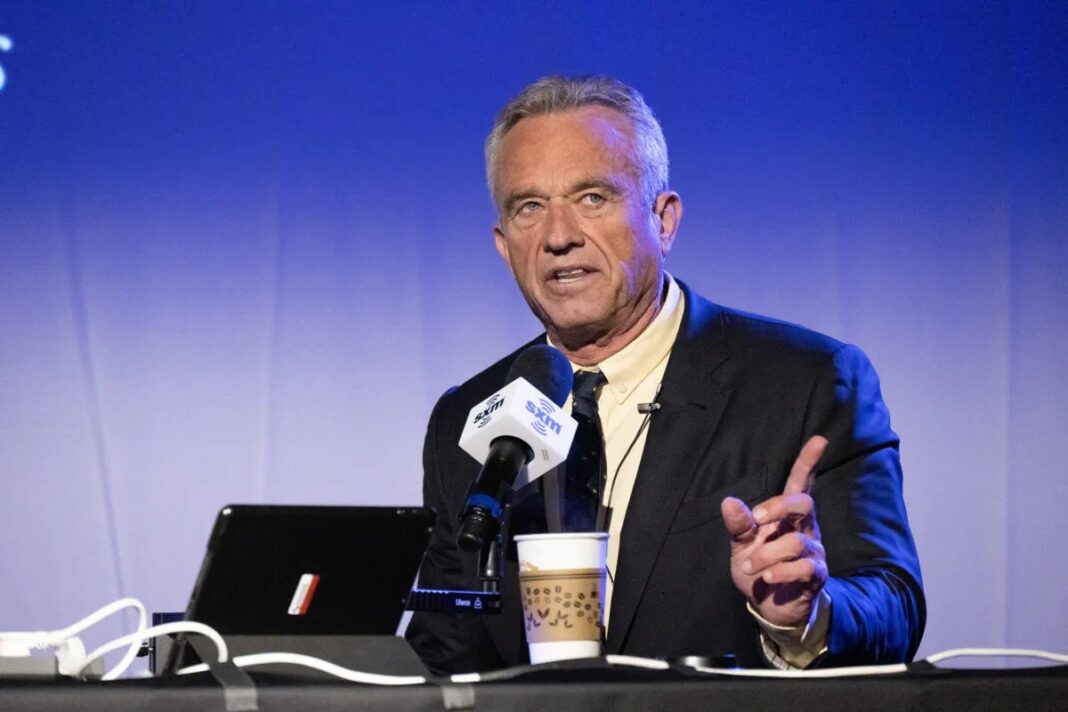|
Getting your Trinity Audio player ready...
|
RFK Jr’s Lawsuit Against the Biden Admin: A Landmark Case on Free Speech & Gov’t Censorship
Edited by: TJVNews.com
In a significant legal development, Robert Kennedy Jr. has been granted the right to pursue a lawsuit against the Biden administration for allegedly censoring social media posts by his charity, Children’s Health Defense (CHD). According to a report in The New York Post, the decision, handed down by US District Judge Terry Doughty of Louisiana, represents a critical moment in the ongoing debate over free speech, government intervention, and the role of Big Tech in regulating online content.
At the heart of the lawsuit is the claim that the federal government, under the Biden administration, exerted undue pressure on major social media platforms such as Facebook, Instagram, and YouTube to suppress content that expressed skepticism about COVID-19 vaccines and other public health measures, as was reported by The Post. The Children’s Health Defense, founded by Kennedy, has long been a vocal critic of vaccines, which has led to its classification by critics as an “anti-vaccine” organization. The CHD argues that its posts were targeted as part of a broader government effort to combat what was labeled as “misinformation” during the pandemic.
Judge Doughty’s ruling on Tuesday supports the notion that Kennedy’s claims have a credible basis. “The Court finds that Kennedy is likely to succeed on his claim that suppression of content posted was caused by actions of Government Defendants, and there is a substantial risk that he will suffer similar injury in the near future,” Doughty wrote in his 20-page decision, as per the information in The Post report. This statement highlights the judge’s belief that there is sufficient evidence to suggest that the government’s actions may have directly influenced Big Tech’s decisions to censor content related to CHD.
The ruling is especially noteworthy given the broader context of recent legal battles over government involvement in content moderation on social media platforms. The case draws parallels to the Murthy v. Missouri lawsuit, in which the US Supreme Court recently struck down an injunction for failing to sufficiently link censorship to federal government actions. The Post report indicated that in that case, Republican state attorneys general from Missouri and Louisiana accused the Biden administration of pressuring Big Tech companies to remove content that contradicted the official narrative on the pandemic and other controversial issues.
However, Judge Doughty’s decision in Kennedy’s case suggests that the court found more compelling evidence of government involvement. The ruling emphasizes that Kennedy and CHD have standing to pursue their claims, as there is a substantial likelihood that they have suffered—and could continue to suffer—harm as a result of government-induced censorship.
Kim Mack Rosenberg, the general counsel for CHD, praised the ruling as a victory for free speech and a critical step toward holding the government accountable for its actions. “Judge Terry Doughty carefully and clearly analyzed the law and facts and applied the framework from the U.S. Supreme Court’s recent decision in Murthy v. Missouri regarding standing,” Rosenberg said in a statement, as was noted in The Post report. This analysis calls attention to the importance of judicial scrutiny in cases where the government’s role in influencing private sector decisions is in question.
With the ruling in his favor, Kennedy’s lawsuit now returns to the 5th Circuit Court of Appeals, where Doughty’s preliminary injunction against the Biden administration will be reviewed. Indicated in The Post report was that this next phase of the legal battle will be crucial in determining whether Kennedy’s claims will ultimately lead to a broader examination of government actions during the pandemic and their impact on free speech.
The case is likely to have far-reaching implications, not just for Kennedy and the CHD, but for the broader relationship between the government and social media companies. If Kennedy’s lawsuit succeeds, it could set a precedent that limits the government’s ability to influence content moderation decisions by private companies, reinforcing the principle that free speech cannot be curtailed by indirect pressure or coercion.
At the same time, the case also raises questions about the responsibilities of social media platforms in curbing misinformation while respecting free speech rights. The balance between protecting public health and upholding the First Amendment has been a contentious issue throughout the pandemic, and this lawsuit could force a reevaluation of how these competing interests are managed.





